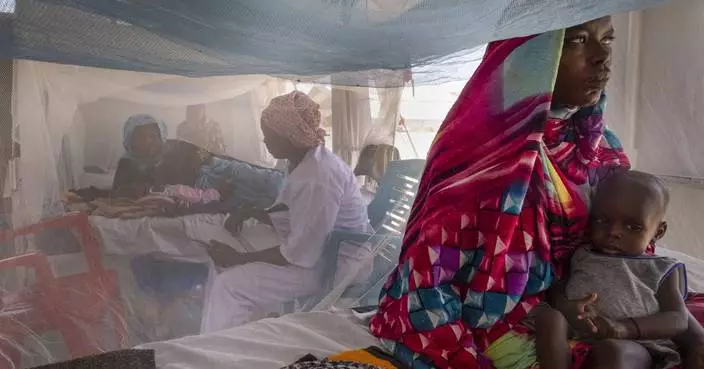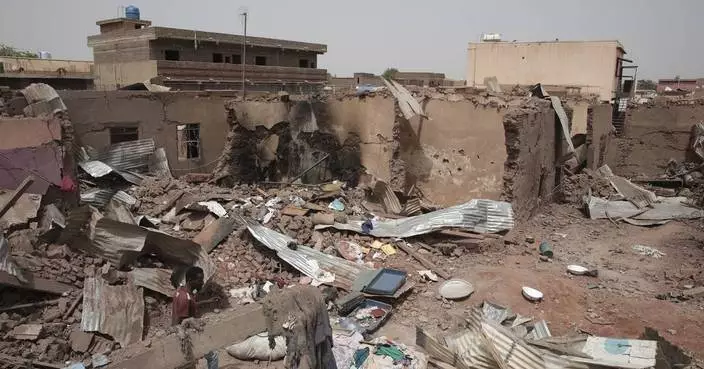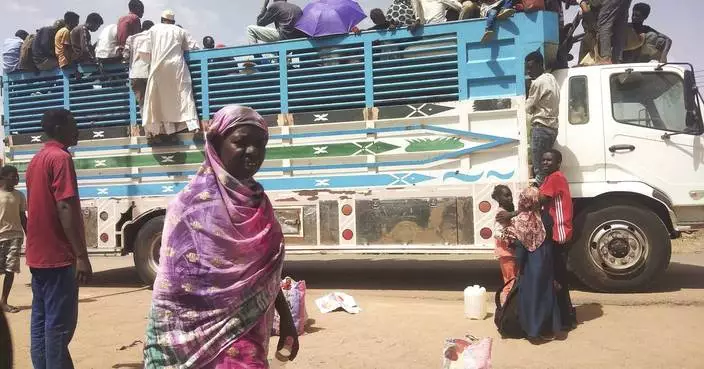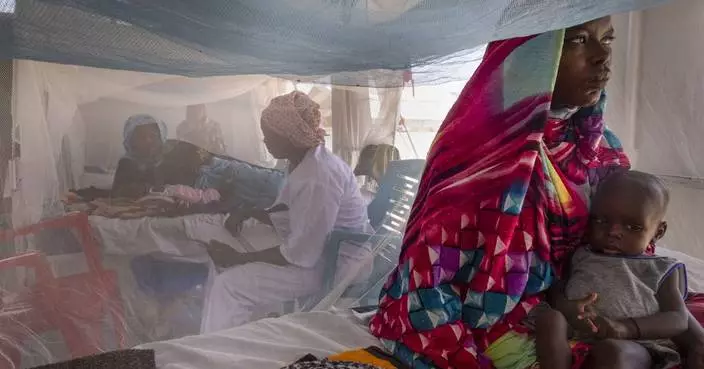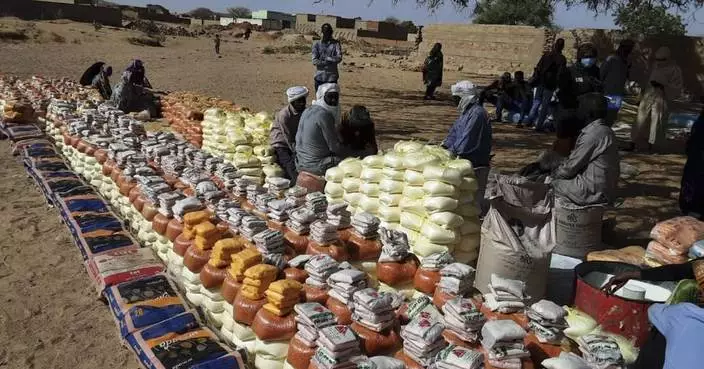U.N. Security Council members decided to end the joint U.N.-African Union peacekeeping force in Sudan’s western Darfur region when the mission's mandate runs out on Dec. 31, after pressure from the country's transitional government, Russia and African nations.
The council voted unanimously late Tuesday not to extend the mandate of the joint mission, known as UNAMID. In June, the Security Council unanimously approved replacing it with a much smaller and solely political mission, which will be known as United Nations Integrated Transition Assistance Mission in Sudan, or UNITAMS.
The UNAMID force, established in 2007, was the first joint U.N.-AU peacekeeping operation. It now has well over 6,000 military and police personnel and more than 1,500 civilian staffers.
The Sudanese government has been pressing for UNAMID to expire at year's end, a request that obtained the backing of Russia, Niger, South African, Tunisia and St. Vincent and the Grenadines in a council meeting earlier this month.
Several Western nations have urged more time before UNAMID's exit, with Germany’s ambassador to the U.N., Christoph Heusgen, warning that Sudan is at “a critical juncture” and “the transition process could still derail.”
Sudan is on a fragile path to democracy after a popular uprising led the military to overthrow autocratic President Omar al-Bashir in April 2019, after nearly three decades of rule. Since then, the country has been led by a joint military-civilian government, which has been struggling to end Sudan’s decades-long civil wars and overcome the country’s dire economic conditions.
The International Criminal Court has charged al-Bashir, who’s been imprisoned in Sudan since his ouster, with war crimes and genocide over the conflict in Darfur. The country’s transitional authorities earlier this year said wanted individuals would face justice before the ICC, without mentioning al-Bashir by name.
The Security Council also called on U.N. Secretary-General Antonio Guterres to complete the withdrawal of UNAMID by June 30 next year, and to quickly ensure a “phased, sequenced and efficient" transition to UNITAMS.
It urged Sudan’s government to “fully and swiftly” implement its plan to provide protection to civilians in Darfur. The government has already started to deploy a 12,000-strong Civilian Protection Force to the region as part of a peace deal it struck with the Sudan Revolutionary Front, a coalition of several armed groups.
The Security Council called on the transitional government to work to “build confidence of local communities in the ability of the rule of law institutions to deliver justice, ensure accountability and provide legal protection to vulnerable communities."
In an interview with The Associated Press earlier this month, Jeremiah Mamabolo, the joint U.N.-African Union envoy for Darfur, cautioned that mistrust still runs deep in the troubled region.
He said that although the major fighting in Darfur has stopped, sporadic intercommunal clashes in the region have increased this year.
The Darfur conflict began in 2003 when ethnic Africans rebelled, accusing the Arab-dominated government in Khartoum of discrimination. The government has been accused of retaliating by arming local nomadic Arab tribes and unleashing the militias known as janjaweed on civilians — a charge it denies.
In recent years, as the result of a government's military campaign, the insurgency has been reduced to a rebel Sudan Liberation Army faction headed by Abdul Wahid Elnur in Jebel Marra.
The decision by the Security Council came as hundreds of protesters in Darfur, mostly displaced children and women, have protested for over two weeks against the end of UNAMID.
The ICC’s prosecutor Fatou Bensouda called earlier this month for Sudan to match its commitment to justice in Darfur with action, starting with unimpeded access for the tribunal’s investigators to witnesses, crime scenes and other evidence in the region.
JACKSON, Miss. (AP) — As a child, Dau Mabil escaped war-torn Sudan and built a new life in Mississippi. This month, fishermen found the body of the 33-year-old Mabil floating in a river, prompting calls for a federal investigation into his disappearance and death.
Mabil, who lived in Jackson with his wife, went missing in broad daylight on March 25 after going for a walk on a trail connecting the Mississippi Civil Rights Museum with other city landmarks. His brother, Bul Mabil, cast doubt on initial autopsy results published Thursday, which a sheriff said did not uncover signs of foul play.
Bul Mabil said he is dissatisfied with the way authorities have handled the case.
“I can't believe this would happen to someone who came here from a war-torn country,” he said in an interview with The Associated Press. ”I was expecting much better government in this country. But this is the way the United States operates. It is so appalling.”
Democratic U.S. Rep. Bennie Thompson of Mississippi, whose district includes Jackson, sent a letter to Attorney General Merrick Garland requesting a Justice Department investigation. Thompson said civil rights organizations had contacted his office about the case, and his letter described Mabil as an “African male, who is married to Mrs. Karissa Bowley, a white female.”
Family members and concerned citizens spent weeks searching for Dau Mabil, who was captured by a surveillance camera walking near the trail. In an interview, Bul Mabil said he raced to Jackson from his home in Houston on March 26 after hearing of his brother’s death from a family friend. He said he began looking into the case on his own, alongside the Capitol Police, a state law enforcement agency that operates in part of Jackson.
At the same time, Bowley led rallies and information campaigns on behalf of her missing husband, asking for the public's help to find him. She did not respond to a text or phone call seeking comment.
Fishermen spotted a body on April 13 in the Pearl River in Lawrence County, about 60 miles (97 kilometers) south of Jackson. Days later, officials confirmed the remains were those of Dau Mabil.
Bul Mabil said his brother's death has been devastating for him and his mother, who still lives in a refugee camp.
The brothers were among the thousands of young refugees brought to the U.S. during their country’s bloody civil war. After they arrived, Julie Hines Mabus, the ex-wife of former Mississippi Gov. Ray Mabus, started a foundation that helped the children settle in Jackson. She described Dau Mabil as “soft-spoken, a smile on his face, a little twinkle in his eye.”
“To get here was miraculous and then for Bul to get his brother here was even more miraculous,” Hines Mabus told the AP. “It was sort of like a homecoming. And now for Bul to face this with his brother, it’s just heartbreaking.”
Bul Mabil filed emergency legal papers to ensure his brother's body wouldn't be released to Bowley and her family until an autopsy was performed by both the state crime lab and an independent medical examiner. On Thursday, Hinds County Chancery Judge Dewayne Thomas granted the request, pausing release of the body and ordering a second autopsy.
In a subsequent court filing, Bowley's attorney said her client “embraces” the judge's order for an additional autopsy, with the condition it be conducted only after all law enforcement entities finish investigating.
Bul Mabil cast doubt on a statement from Lawrence County Sheriff Ryan Everett, who first reported the results of the initial autopsy Thursday. Everett said the autopsy did not reveal foul play, but an official determination may be made later, pending further testing.
Bailey Martin, a spokesperson for the state Department of Public Safety, said the state crime lab performed the autopsy. The department expects to receive DNA confirmation next week.
Bul Mabil's attorneys said they hope an independent autopsy can be done within the next week.
Capitol Police conducted an “insufficient” investigation, Bul Mabil said. One of this attorneys, Carlos Tanner, said his client was “being left in the dark about the suspicious circumstances” about his brother's disappearance and death.
Vallena Greer, a Jackson woman who took in and raised Dau Mabil, said he thrived in America. He received a school award for his improved English speaking skills and was a talented soccer player.
At the time of his disappearance, Dau Mabil worked as a manager at a Jackson restaurant and planned on returning to school to earn a computer science degree.
“He did well for what America wants immigrants to be," Bul Mabil said. “We called Mississippi our second home. We didn’t know something like this would happen to one of us.”
Michael Goldberg is a corps member for the Associated Press/Report for America Statehouse News Initiative. Report for America is a nonprofit national service program that places journalists in local newsrooms to report on undercovered issues. Follow him at @mikergoldberg.
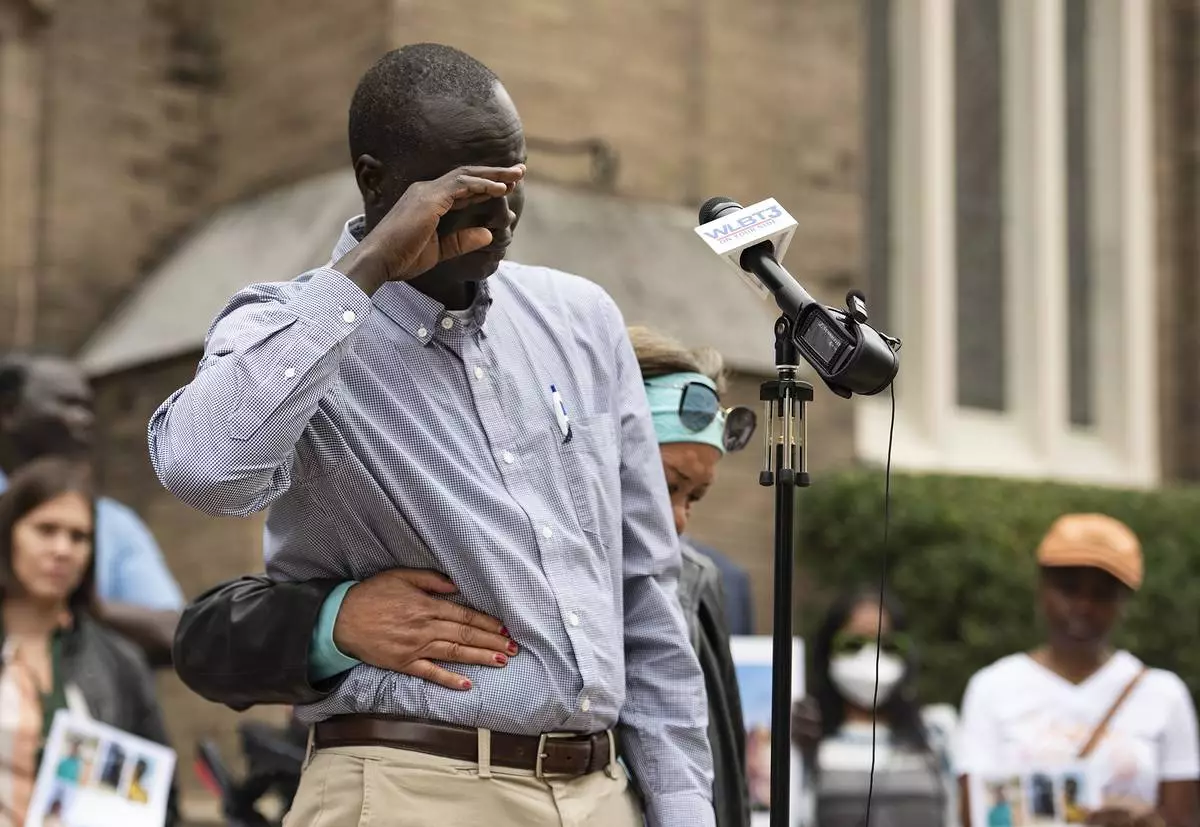
Bul Mabil cries as he speaks during a press conference to ask for the public's help in finding his brother, Dau Mabil, at St. Andrew's Episcopal Cathedral in Jackson Miss., on Monday, April 1, 2024. As a child, Dau Mabil escaped war-torn Sudan and built a new life in Mississippi. In April, fishermen found his body floating in a river in the state — prompting calls for a federal investigation into his disappearance and death. (Lauren Witte/The Clarion-Ledger via AP)
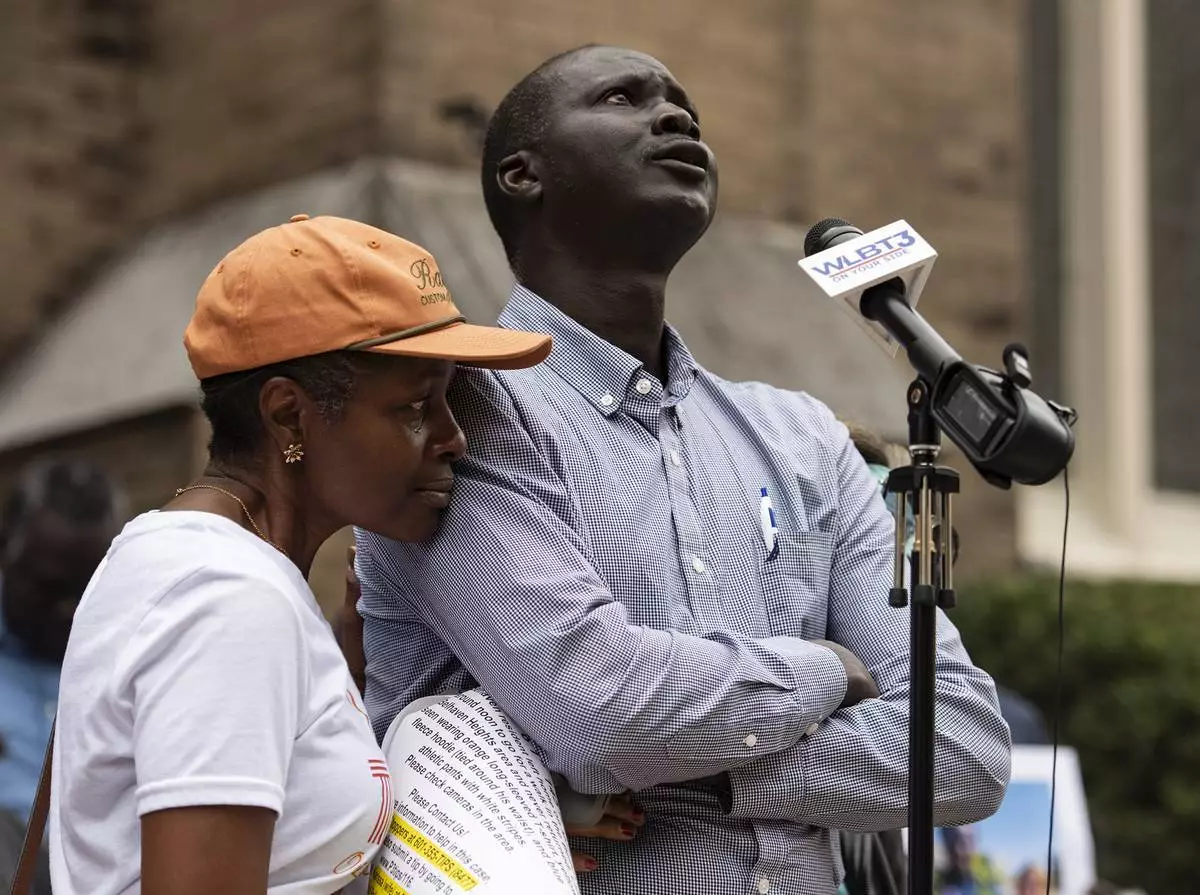
Dr. Rosie Ann Riley comforts Bul Mabil as he gets emotional speaking about his brother, Dau Mabil, during a press conference to ask for the public's help in finding Dau at St. Andrew's Episcopal Cathedral in Jackson Miss., on Monday, April 1, 2024. As a child, Dau Mabil escaped war-torn Sudan and built a new life in Mississippi. In April, fishermen found his body floating in a river in the state — prompting calls for a federal investigation into his disappearance and death. (Lauren Witte/The Clarion-Ledger via AP)
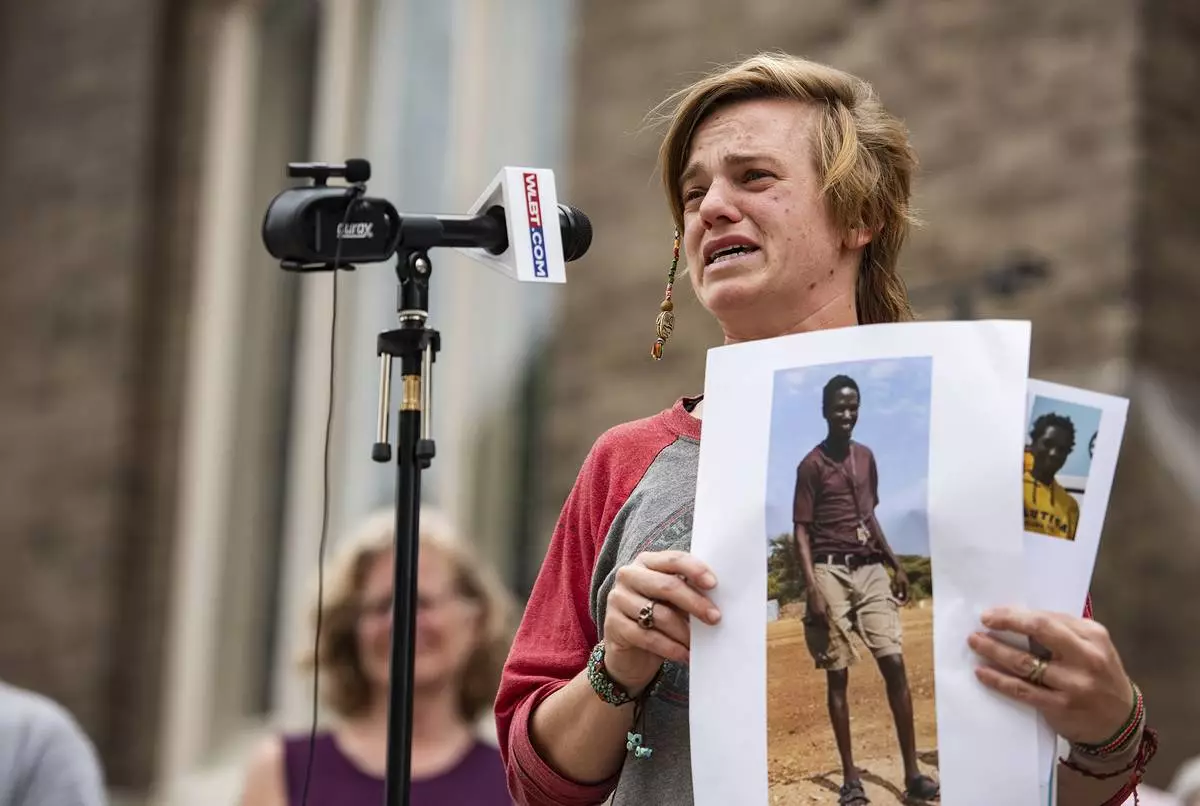
Karissa Bowley, Dau Mabil's wife, speaks during a press conference to ask for the public's help in finding Mabil at St. Andrew's Episcopal Cathedral in Jackson Miss., on Monday, April 1, 2024. As a child, Dau Mabil escaped war-torn Sudan and built a new life in Mississippi. In April, fishermen found his body floating in a river in the state — prompting calls for a federal investigation into his disappearance and death.(Lauren Witte/The Clarion-Ledger via AP)
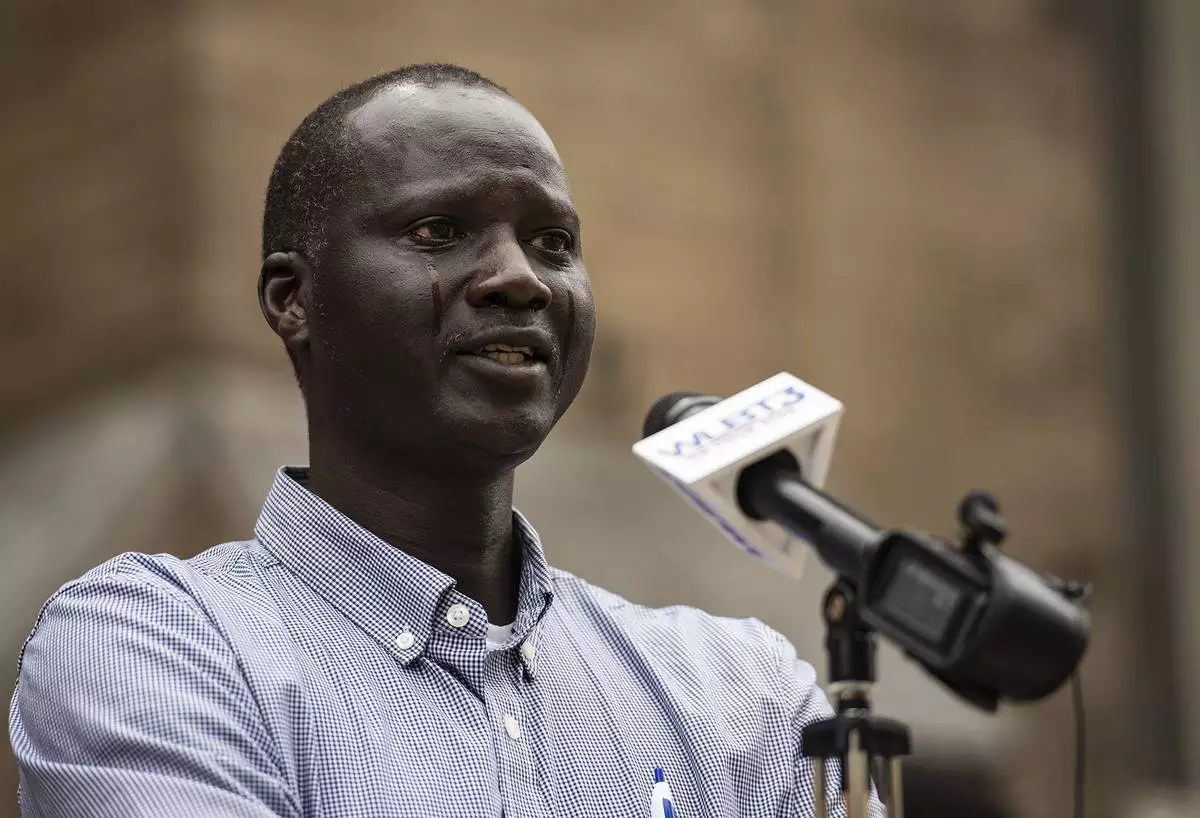
Bul Mabil has tears streaming down his face as he speaks during a press conference to ask for the public's help in finding his brother, Dau Mabil, at St. Andrew's Episcopal Cathedral in Jackson Miss., on Monday, April 1, 2024. As a child, Dau Mabil escaped war-torn Sudan and built a new life in Mississippi. In April, fishermen found his body floating in a river in the state — prompting calls for a federal investigation into his disappearance and death. (Lauren Witte/The Clarion-Ledger via AP)







